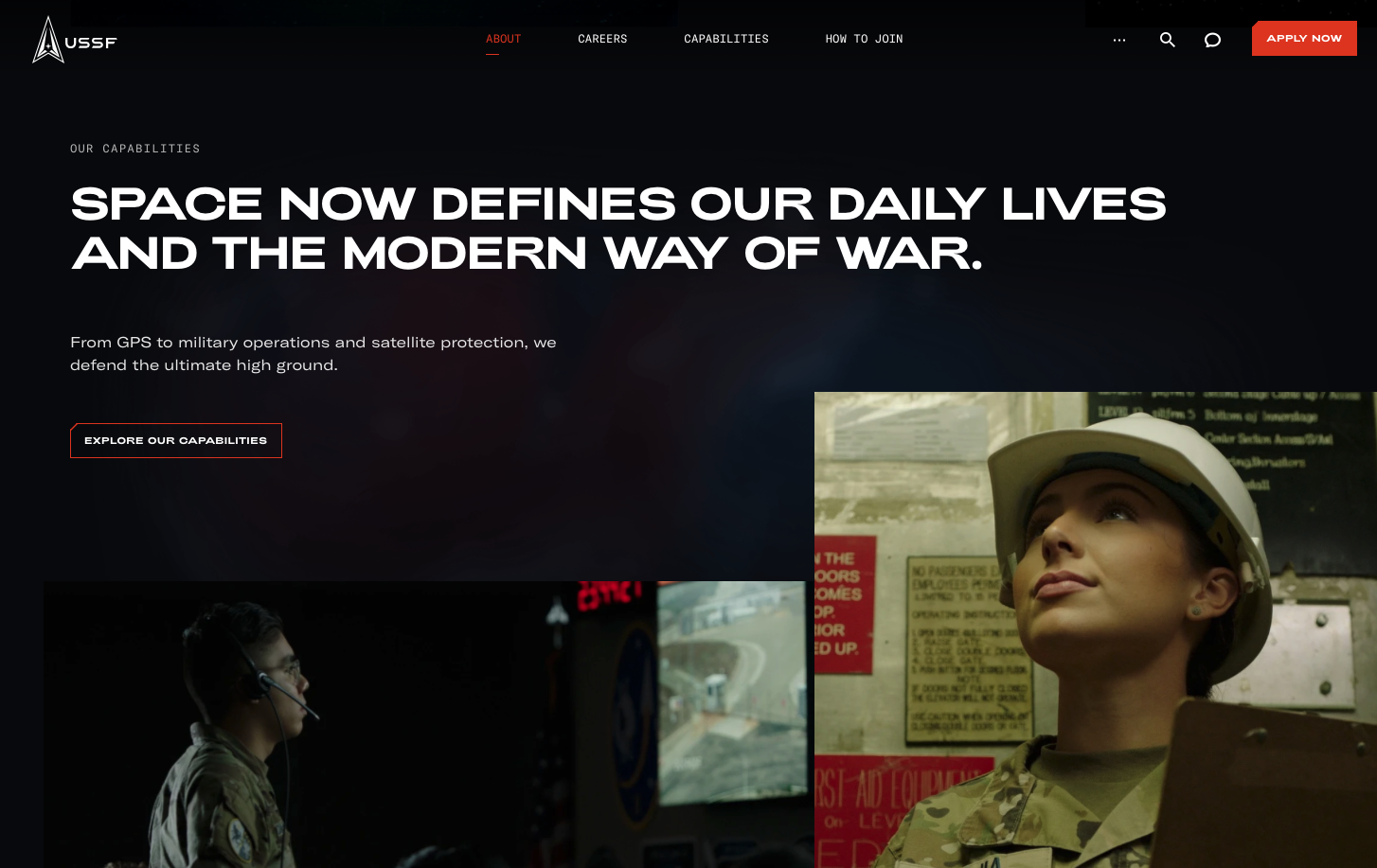The United States Space Force is an interesting phenomenon.
A few years into its existence, most of us civilians are probably still trying to figure out what it is. Just another branch of the military? Something different? What does it mean to us?
This matters because–like any organization with big aspirations, Space Force needs to attract and retain top talent. In this realm, it has two tough challenges. It needs to 1) stand out from other military branches and 2) carve out a piece of the conversation about space that’s being dominated by SpaceX and NASA, likely with a limited marketing budget.
On the positive side, Space Force has created a futuristic brand identity that you might expect from an organization operating at the next frontier. It also has a powerful core set of organizational values. That’s a great start.
But values and a logo alone won’t give you a culture and a brand.
Organizations have a moment early in their history when they can consciously shape their culture and their brand. That takes reflection, tough choices and leadership. At a certain point, however, both culture and brand become pretty fixed and hard to change.
Space Force is at that moment.
A recent opinion piece written by a retired U.S. Air Force brigadier general makes this case compellingly. Space Force, she points out, needs to do some work on itself:
Space Force needs to be clear that it is a “new, different type of national security organization—not a military service.”
And that “forcing a warfighting culture on the Space Force restricts its ability to grow into a unique organization with its own vibrant culture.”
She closes by saying that “leaders need to articulate what the Space Force uniquely does.”
As someone who focuses on brand and culture as a profession, that sounds to me like an unambiguous call to action that should be heeded.
If Space Force doesn’t ask and answer the hard questions about why it exists and who it’s for now, it may miss its moment to forge the right identity for itself.
Marketing and recruiting efforts will not break through, and worse, the organization runs the risk of not reaching its potential to be something different and special for the people who serve in it and for the country.
